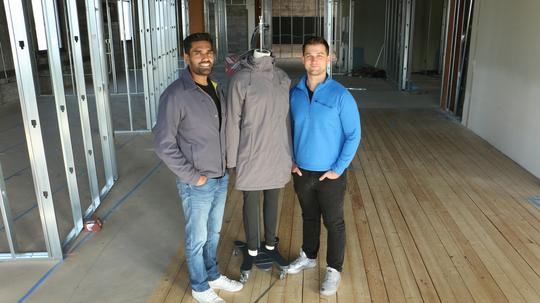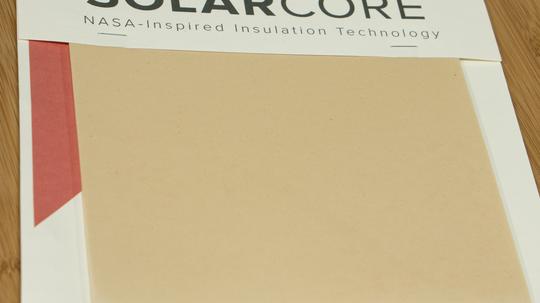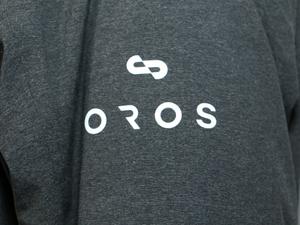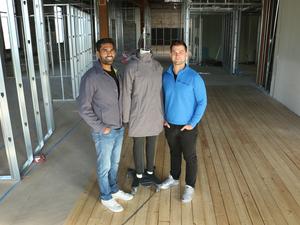
Portland apparel company Oros is headed to space again, but this time with scientific implications that could extend human life.
Oros makes jackets and outerwear insulated using technology used in astronaut suits and on spacecraft. It relocated to Portland from Cincinnati in 2019 and has become a promising part of the local apparel startup ecosystem.
Blue Origin, an aerospace manufacturer owned by Amazon founder Jeff Bezos, is launching its NS-23 rocket equipped with Oros technology Aug. 31. The purpose of the launch is to test if human cells can withstand temperatures in space that can drop to negative 450 degrees Fahrenheit. Oros’ Solarcore insulation technology will be used to prolong the life of the batteries that will keep the cells at a livable temperature.
“All we're really doing is cold chain packaging, just in space with this program Blue Origin,” Oros CEO Michael Markesbery said. “So this beta for us validates and provides evidence for a lot of really big opportunities that we're really excited about both in space and on Earth.”

But this launch is about more than keeping cells alive, Markesbery said. It is a test for developing technology that could 3D build human tissues more effectively.
"Recently there's been a big movement to 3D print human tissues, human cells and human organs. But the problem is when you 3D print things, it gets very dense at the bottom, so it's very challenging to 3D print human cells, tissues and organs on Earth,” Markesbery said. "But in space, there's very little gravity, and so that density that you normally get on 3D printing doesn't occur in space or in low Earth orbit.”
If Oros is able to help insulate the creation of human cells in space, it can also make sure those cells or organs stay alive on the descent back to Earth. This could help expedite organ donor waitlists, Markesbery said, some of which can be years long.
While Markesbery doesn’t know how long the launch on Aug. 31 will last, he said similar launches by Blue Origin in the past have been around 10 minutes. This mission is a launching point not only for Blue Origin but for Oros, Markesbery said, and reflects only the beginning of how its Solarcore technology can change the world.
"We’re only getting started," Markesbery said in a press release. “From aerospace, to cold-chain packaging (vaccines, drugs etc.), to structural insulation and apparel, our applications are vast, and we’re honored to be moving the science forward in collaboration with our partners at Blue Origin.”





